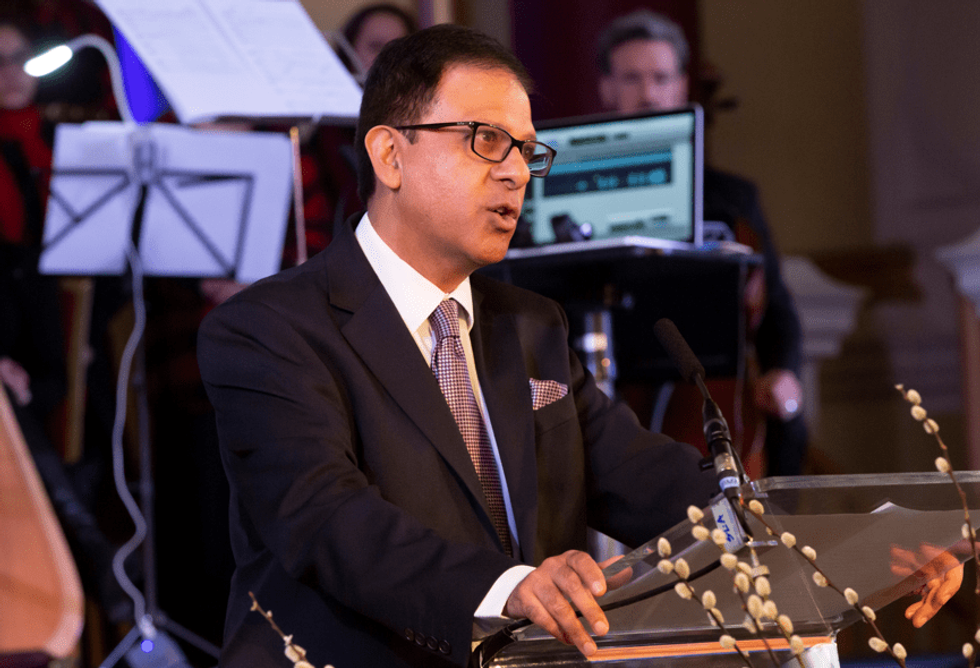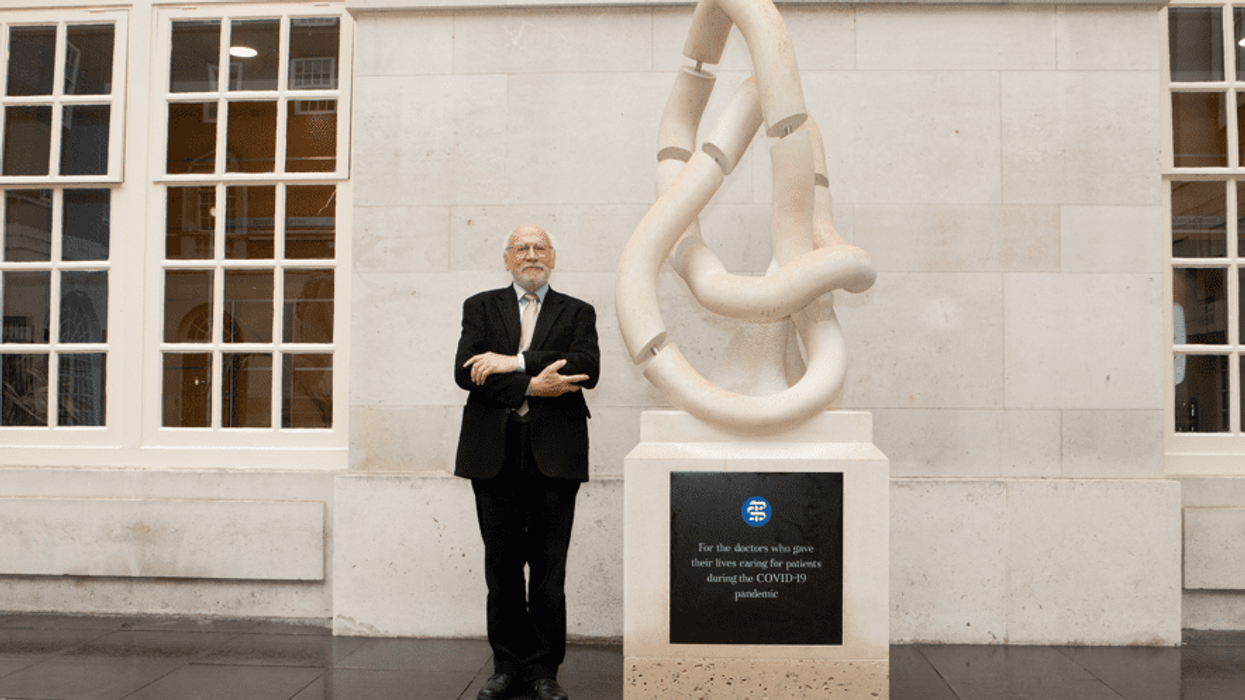THE son of an Asian doctor who died in the pandemic said Covid has united communities as he explained his family was one among many who had suffered the loss of loved ones in the past two years.
Dr Yusuf Ismail Patel, founder of Woodgrange Medical Practice in east London, is suspected to have caught the virus days before prime minister Boris Johnson announced the first lockdown in March 2020.
His son Ahmed told Eastern Eye that although his father’s passing at 61 years was untimely, it was “fitting that he died sacrificing himself for others, because that’s what he did”.
Dr Patel caught the virus in early March 2020 and began to isolate at home – at a time when little was known about how deadly the coronavirus was.
“There was very little PPE back then, it was kind of a novel virus,” his son Ahmed told Eastern Eye. “He was isolating; he had a cough, but he did tell everyone, ‘Don’t come into my room.’”
When Dr Patel called for an ambulance, he was told he didn’t meet the threshold to be taken to hospital.
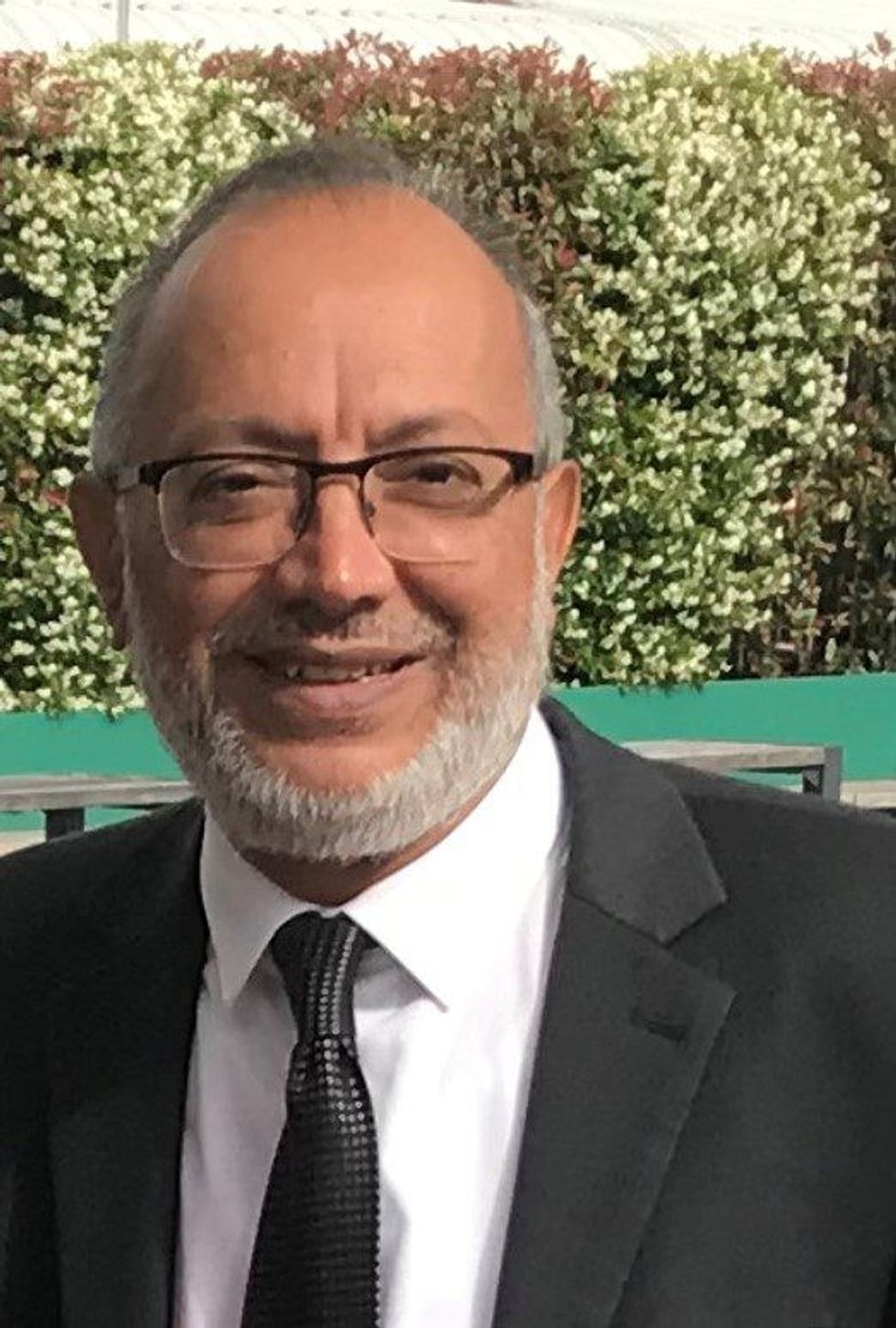
A few days later, his condition got worse and this time he was taken to hospital, where he was being treated for a week before he was put on a ventilator.
“You only received one call a day from the hospital,” Ahmed said. Before Dr Patel was put on the ventilator, he called his family and told them, ‘have himmat (strength).’”
Ahmed said, “And something clicked, I knew in my head and my heart, that something was serious, because I know my dad. “It was quite traumatic not just for us, but for everyone involved, who lost someone to Covid, whether they were medics or not.
“As you can imagine, the whole country, the world, was in lockdown; it was all new to everyone. And right from the beginning of the pandemic, we experienced losing a loved one to the virus. Some people were spending more time at home with their family, but our experience was more about, ‘let’s just get through this’.
“And then after 10 days being on the ventilator, he passed away, on Monday, the 20th of April 2020.”
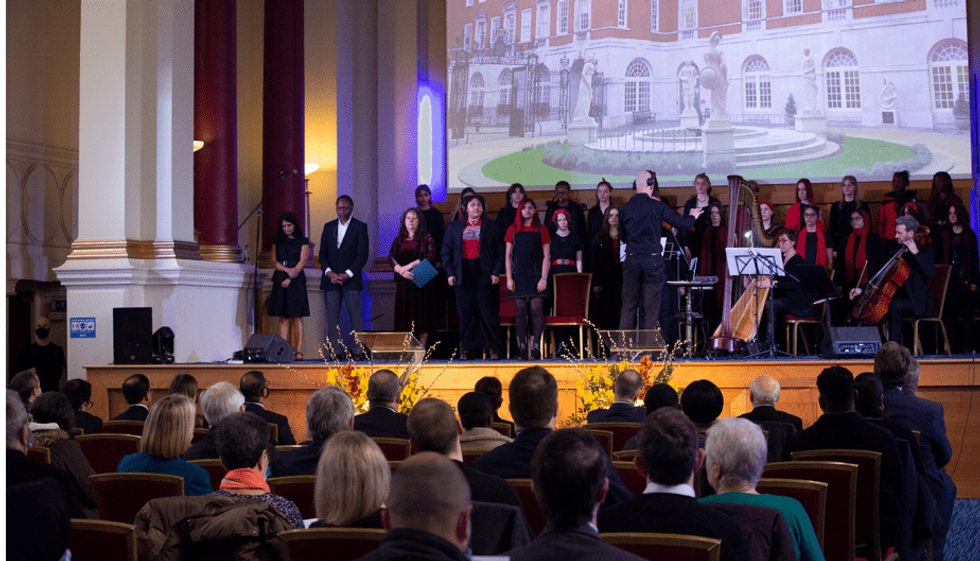
Ahmed paid tribute to his father, saying, “He gave a good fight, he didn’t go down that easily.
“We were able to see him while he was on the ventilator, just once or twice. It was myself, my mum, sisters, all in PPE covering. And that was it.
“The week that Boris Johnson announced lockdown, my father was isolating from a cough, he probably got that about two weeks prior. He was completely fine before, with no prior issues.”
Dr Patel, whose family is from Gujarat, was born in Malawi and arrived in the UK aged seven. He went to a local comprehensive school before he got into Sheffield medical school.
Having completed his degree in medicine, he worked as a GP in Newham, east London and a few years later decided to open his own practice in Forest Gate.
Ahmed said, “We’ve got a family background of business, and dad combined the two together; his Woodgrange Medical Practice has an outstanding rating by the CQC; it’s one of the best in London.
“From zero patients, it’s now got over 16,000. He kept on expanding over time. He was very business-minded, which runs in the family and something that is quite cultural. At the same time, he always put patients at the forefront – it was patient care that was the most important thing.”
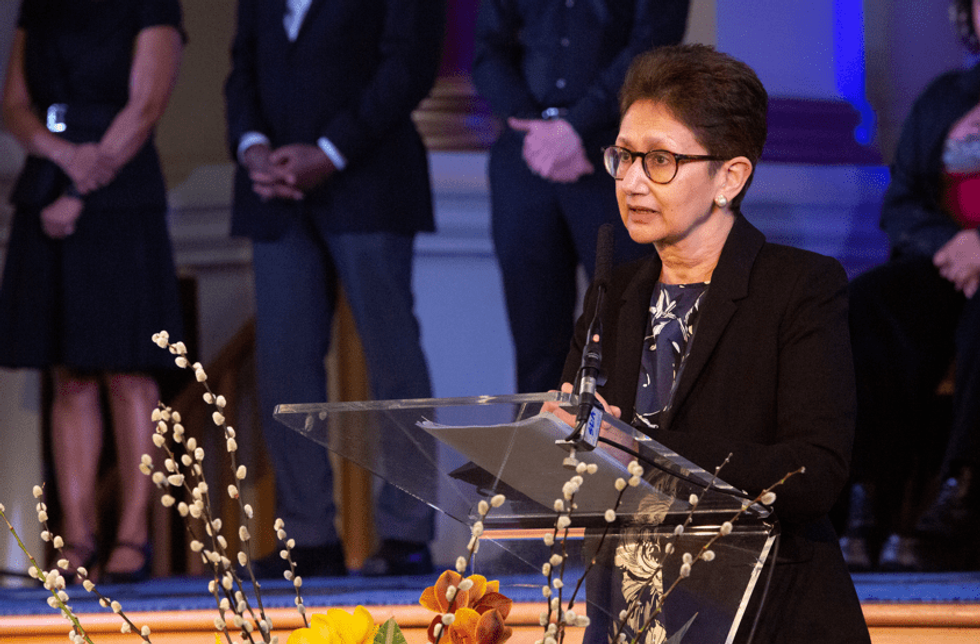
Forest Gate has a diverse population, with predominately Asian and minority ethnic communities.
Ahmed recalled his father was a funny man. “He loved a good laugh. And everyone felt close to him, he had that personality. One thing he did say to me was, ‘in life, whatever you do, have passion, and you’ll be successful. So that’s something that always stays with me, whatever I do in life.”
Dr Patel’s three children are all involved in healthcare. One daughter is following in her father’s footsteps. Another daughter is a veterinary nurse and Ahmed is in healthcare management.
“We’re all in healthcare in some capacity,” he said, adding “I think that stems from my dad, and seeing what my dad’s done to help others.”
His remarks came as he attended a memorial last Wednesday (16) by the British Medical Association (BMA) to pay tribute to healthcare workers who had died while caring for those with Covid. Two years on, Ahmed said the family were “good as you can be.”
“I think my dad would have wanted us to move forward and continue life and be happy. I think as the (BMA) chair (Dr Chaand Nagpaul) did say, ‘it comes in waves. Life does change when you lose someone. And my grandma passed away recently too.
“Many people have sadly lost their lives to Covid. My dad passed away, but I’m also thinking of those who have lost loved ones. A lot of community spirit has been shown throughout the pandemic, which brings strength knowing that we are not alone. Hopefully, this cohesive and compassionate culture continues.”
Asked if he thought the pandemic has united communities, Ahmed said, “I would like to think so. People are quite quick to forget things in life. But these kinds of events (the BMA memorial) are a good reminder of how brave healthcare staff were in the pandemic.
“The memorial sculpture is really good. I think it’s good to have a sign in history. It’s quite fitting alongside the war memorial (dedicated to healthcare workers who died during the two world wars).
“This has been a different kind of war, an invisible war and the memorial will make us remember Covid and all those families who have lost loved ones who sacrificed themselves helping others.”
Also read: Memorial for pandemic staff unveiled
